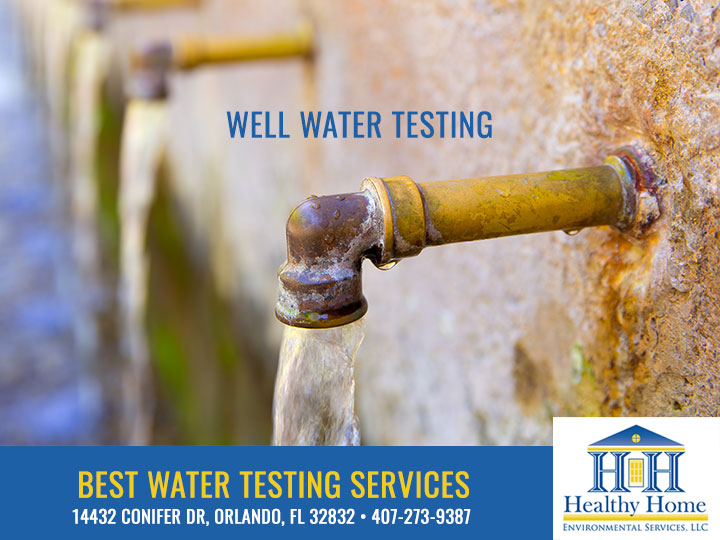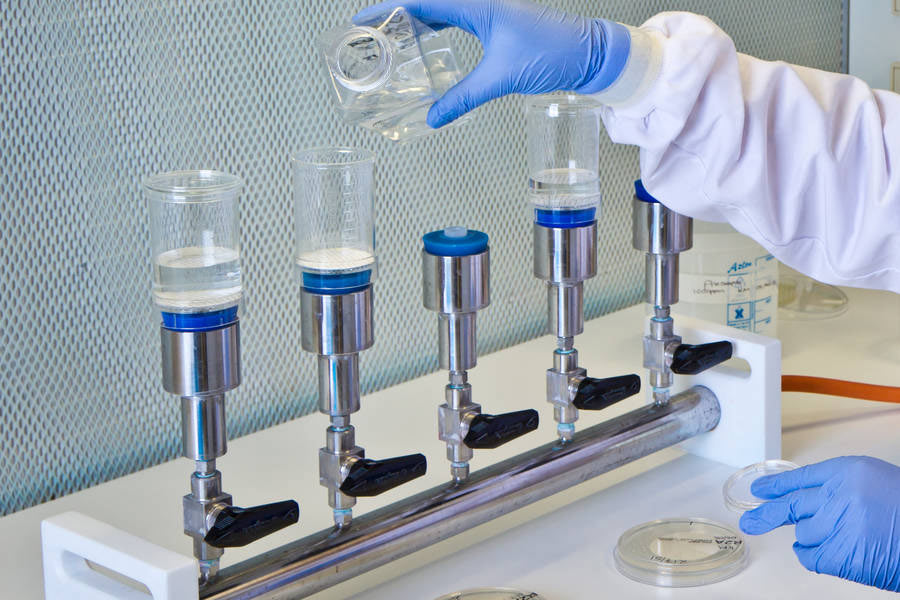Comprehensive Water Testing Services Orlando for Your Home's Requirements
Comprehensive Water Testing Services Orlando for Your Home's Requirements
Blog Article
Learn Exactly How Water Testing Can Discover Contaminants and Protect Your Household's Wellness
Comprehending the importance of water screening is important for securing your household's health and wellness, as our water system can harbor undetected dangers. From microorganisms to hefty steels, impurities pose significant dangers, frequently undetectable without proper evaluation. By discovering the mechanics of water screening, one can uncover the undetectable threats hiding in apparently beautiful water sources. Yet, exactly how do you determine which examinations are essential for your household, and what actions should be taken as soon as prospective risks are revealed? As we browse these inquiries, the path to making sure water security and a much healthier living setting ends up being clearer.
Significance of Water Checking
Recognizing the crucial duty water plays in sustaining life, the relevance of water screening can not be overstated. Guaranteeing that water is cost-free from harmful compounds is vital for keeping healthy and balanced communities and environments. Well water testing services.
Water screening works as a proactive step to recognize prospective risks that may compromise water quality. With organized evaluation, it helps discover physical, chemical, and organic specifications that might posture threats to human health and wellness. Routine testing enables the early discovery of issues, promoting timely interventions to stop prevalent contamination and linked health troubles.
In addition, water testing supports regulative compliance, ensuring that water suppliers satisfy recognized safety and security standards and guidelines established by governmental authorities. It fosters transparency and responsibility, developing public rely on the water supply system. Furthermore, testing provides valuable data that educates water monitoring approaches, allowing sustainable usage and conservation of this precious resource.
Basically, water testing is an essential tool that safeguards public wellness, makes certain regulative adherence, and promotes the lasting management of water sources. Its importance in shielding both communities and individuals can not be undervalued.
Common Water Contaminants
Amongst the different components that can compromise water quality, common water pollutants consist of a variety of physical, chemical, and biological compounds that pose significant risks to human health and the setting. Physical contaminants commonly include debris or organic products put on hold in water, which can influence quality and preference.
Biological contaminants, primarily bacteria, viruses, and protozoa, develop from animal and human waste going into water systems. Microorganisms such as E. coli, Giardia, and Cryptosporidium are well-known for triggering gastrointestinal health problems and can be especially unsafe to young kids, the elderly, and those with endangered immune systems. Nitrites and nitrates, often stemming from plant foods, present one more health and wellness danger, especially to babies, possibly causing conditions like methemoglobinemia or "blue child syndrome."
Furthermore, arising pollutants, including drugs and individual care products, have actually raised concerns as a result of their perseverance and unidentified long-term impacts. Comprehending these contaminants is important for executing efficient water treatment strategies and ensuring secure alcohol consumption water.
Just How Water Screening Works
Recognizing the spectrum of impurities in water highlights the importance of efficient testing approaches to protect public wellness. Water screening is a methodical procedure developed to identify and quantify various impurities that might present risks to human health and wellness.
Chemical screening commonly entails spectrometry or chromatography, both of which can recognize and determine particular chemical compounds. Additionally, physical attributes like turbidity, shade, and ph are examined to offer insight right into the overall quality of the water.
The exact techniques employed in water testing depend on the specific pollutants of concern and the water's planned usage. By consistently using these extensive screening protocols, researchers and public health and wellness authorities can make certain the safety and security and quality of water, thus safeguarding areas from prospective health hazards.
Choosing the Right Examination
The very first step is assessing the water source-- be it local, well, or surface area water-- as each has unique threats. Community water may call for testing for disinfectant results, while well water might need screening for nitrates, germs, and hefty metals.
Next, take into consideration recent events and environmental elements. Nearby agricultural activities may require testing for pesticides and herbicides, whereas commercial areas can need checks for chemical toxins. Additionally, any type of changes in water look, odor, or preference should prompt certain testing for usual pollutants like lead, chlorine, or biological microorganisms.
Professional water testing services offer thorough sets that target a variety of potential impurities. These packages frequently straighten with standards set by the Epa (EPA) or neighborhood wellness departments. For an extra tailored method, consulting with a water high quality specialist can offer understandings into which details tests are required based Water Testing Service upon regional problems and specific wellness demands, guaranteeing the security of your home's health.

Preserving Water Security

In addition to screening, proper maintenance of water systems plays an important role. This includes inspecting and servicing plumbing systems, storage tanks, and septic tanks to avoid leaks or backflow that might introduce pollutants - Water Testing Services Near Me. Utilizing water purification systems made to deal with certain local issues can further protect versus pollutants, supplying an extra layer of security
Public awareness and education and learning are similarly vital in keeping water security. Communities must be educated about prospective threats connected with neighborhood water sources and the essential actions to minimize them. Encouraging public engagement in water safety and security initiatives cultivates a collective responsibility that improves general effectiveness.
Ultimately, a thorough strategy that incorporates routine screening, system upkeep, and community participation is important in safeguarding water top quality. By doing so, households can be ensured of tidy and safe water, shielding their health and wellness and wellness.

Verdict
Normal water testing is essential for recognizing contaminants such as microorganisms, heavy metals, and chemicals that posture health and wellness dangers. By evaluating water samples, undetected hazards can be identified, guaranteeing the arrangement of safe alcohol consumption water.
Recognizing the value of water screening is important for guarding your family members's health and wellness, as our water supply can harbor undetected threats.Water testing offers as a proactive step to determine potential hazards that may compromise water high quality.Moreover, water testing sustains regulative compliance, making certain that water service providers meet established safety and security requirements and standards set by governmental authorities. Community water could call for testing for disinfectant results, while well water might require screening for nitrates, germs, and hefty steels.
Normal water screening is an essential element in maintaining the quality of water sources, enabling timely treatments prior to pollutants reach unsafe levels.
Report this page